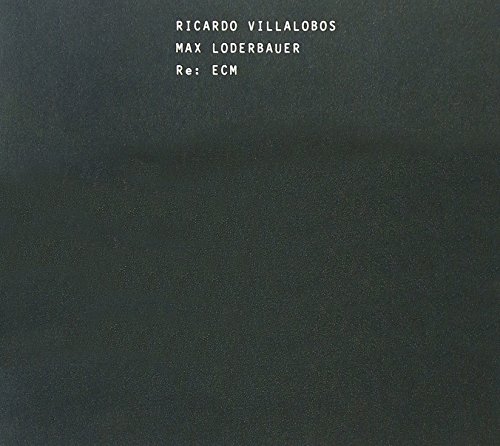
Ricardo Villalobos
Re: ECM
Release Date: Sep 6, 2011
Genre(s): Electronic, Jazz, Techno, Experimental Techno, Ambient Techno
Record label: ECM
Music Critic Score
How the Music Critic Score works
Buy Re: ECM from Amazon
Album Review: Re: ECM by Ricardo Villalobos
Great, Based on 4 Critics
Based on rating 4.5/5
Technically speaking, Ricardo Villalobos and Max Loderbauer's latest album, Re: ECM, took several years to complete, but in another sense it's been decades in the making. Both artists have been fans of the German jazz label since they were young—the former since he was 15—and owe to it the obsession with sound that defines their music. "Immersing oneself in the productions of ECM, one learns a lot about the optimum sound experience," they say.
Based on rating 7.9/10
Ricardo Villalobos is the undisputed winner of the last decade's minimal techno movement. He released two of the period's finest long players (Alcachofa and the still underrated Thè au Harem d'Archiméde) but also established himself as an in-demand festival-packing DJ. Unlike his incredible run between 2004 and 2006 (when Ricardomania was so obvious that Philip Sherburne made note of it, mid-review), his releases these days are thin on the ground, limited to a single here, a remix there.
Based on rating 3/5
There comes a point in every dance trailblazer's life where he or she begins to move away from the club, perhaps wearying of the all-night lifestyle as they mature. On Re: ECM, it seems it has even come for the notoriously hedonistic Ricardo Villalobos. Appropriately for a man spoken of with hushed reverence among minimal-techno devotees, it is a worthy-sounding project: reinterpreting pieces (by the Christian Wallumrød Ensemble and Arvo Pärt, among others) from the back catalogue of modern jazz and classical label ECM.
Opinion: Excellent
Despite typically being pinned under the ‘experimental/avant-garde techno’ blanket, the work of many of Ricardo Villalobos and Max Loderbauer’s closest contemporaries is steeped in jazz, questing for complete compositional freedom in music generally limited by structurally rigid modes of creation. The Moritz Von Oswald Trio, with whom Loderbauer plays modular synth, are probably the best example of that approach. While remaining rhythmically locked to a clubby pulse, their albums are sprawling and exploratory, as evocative of In A Silent Way as they are of the dub techno on which Von Oswald made his name.
'Re: ECM'
is available now

